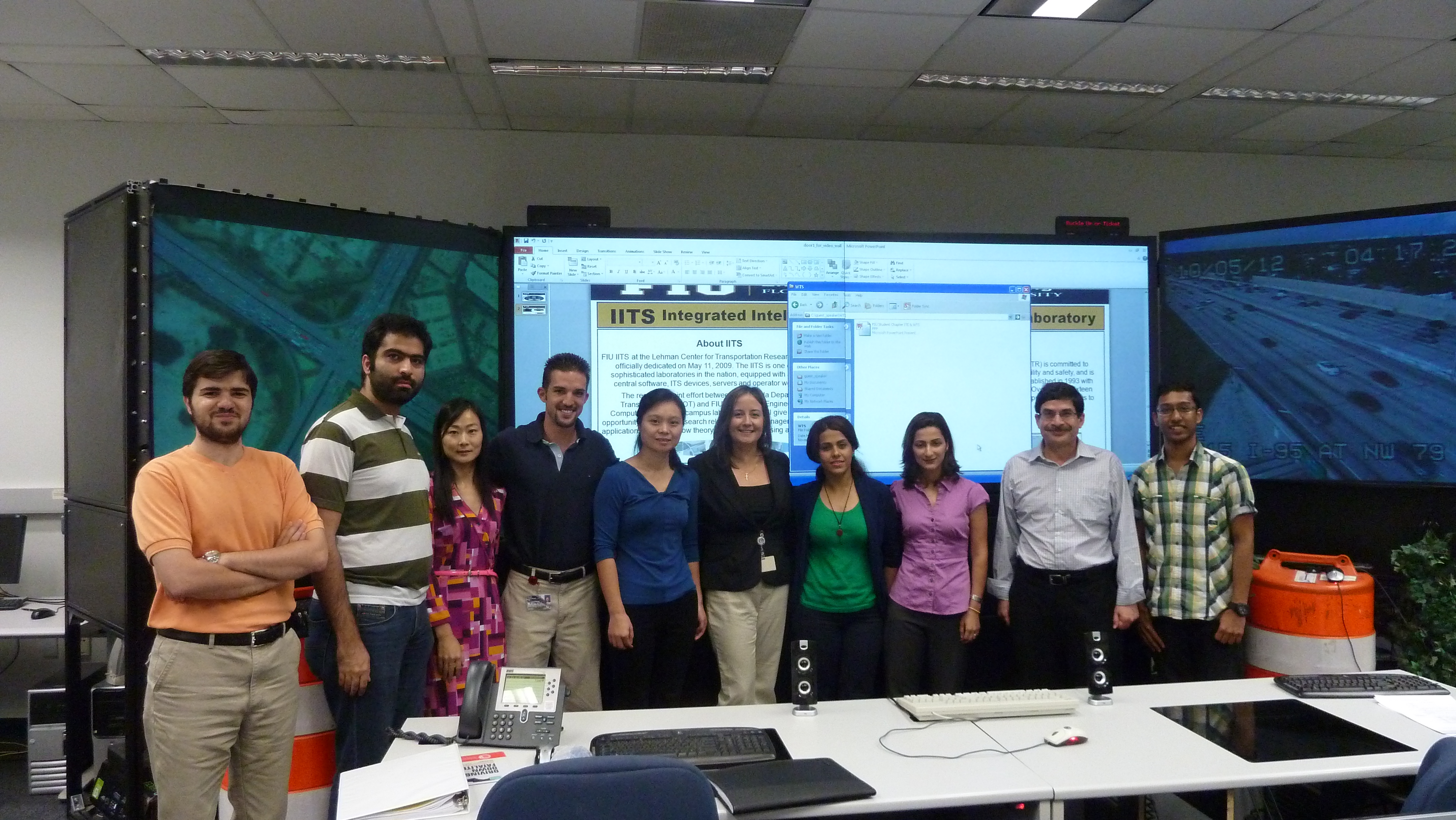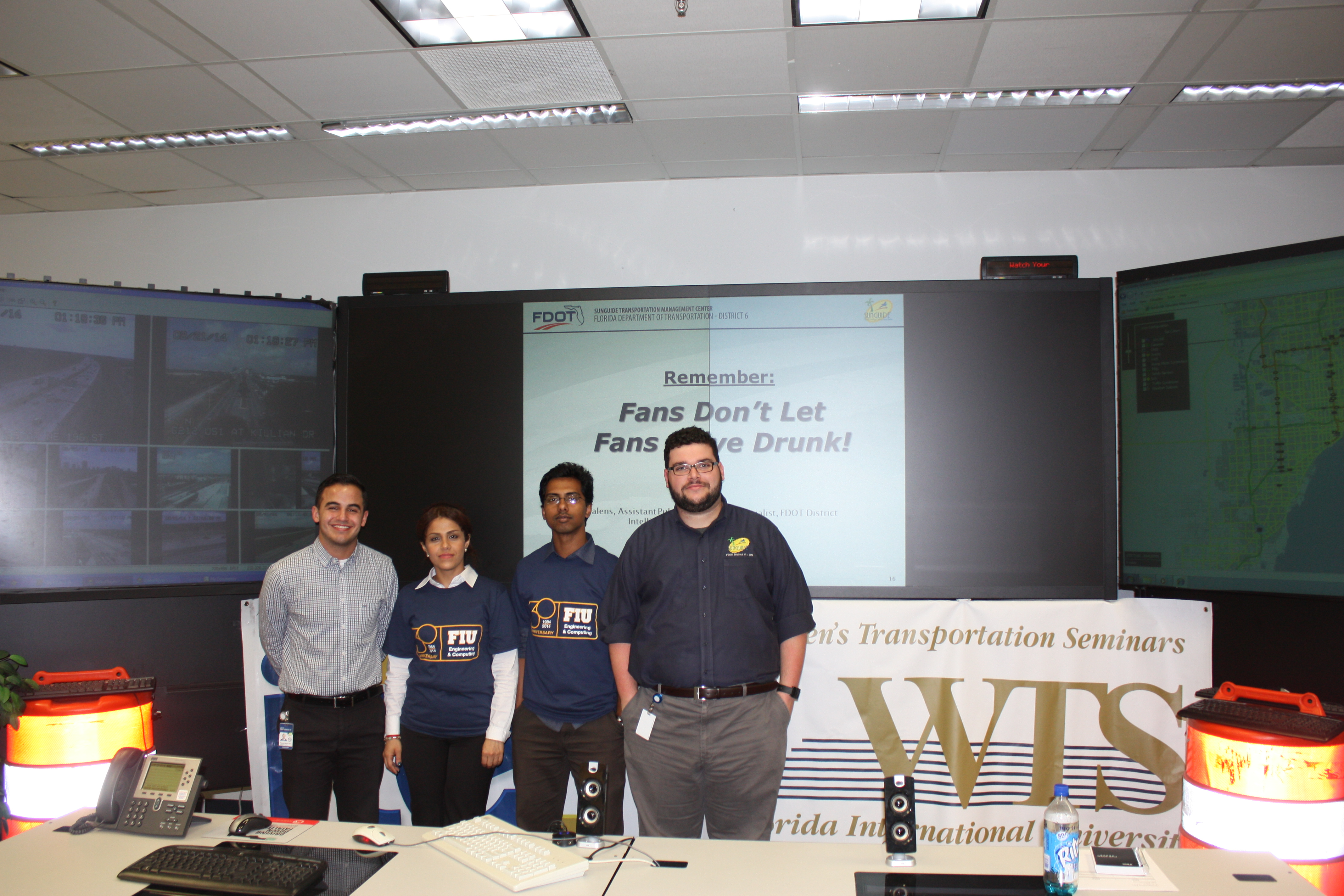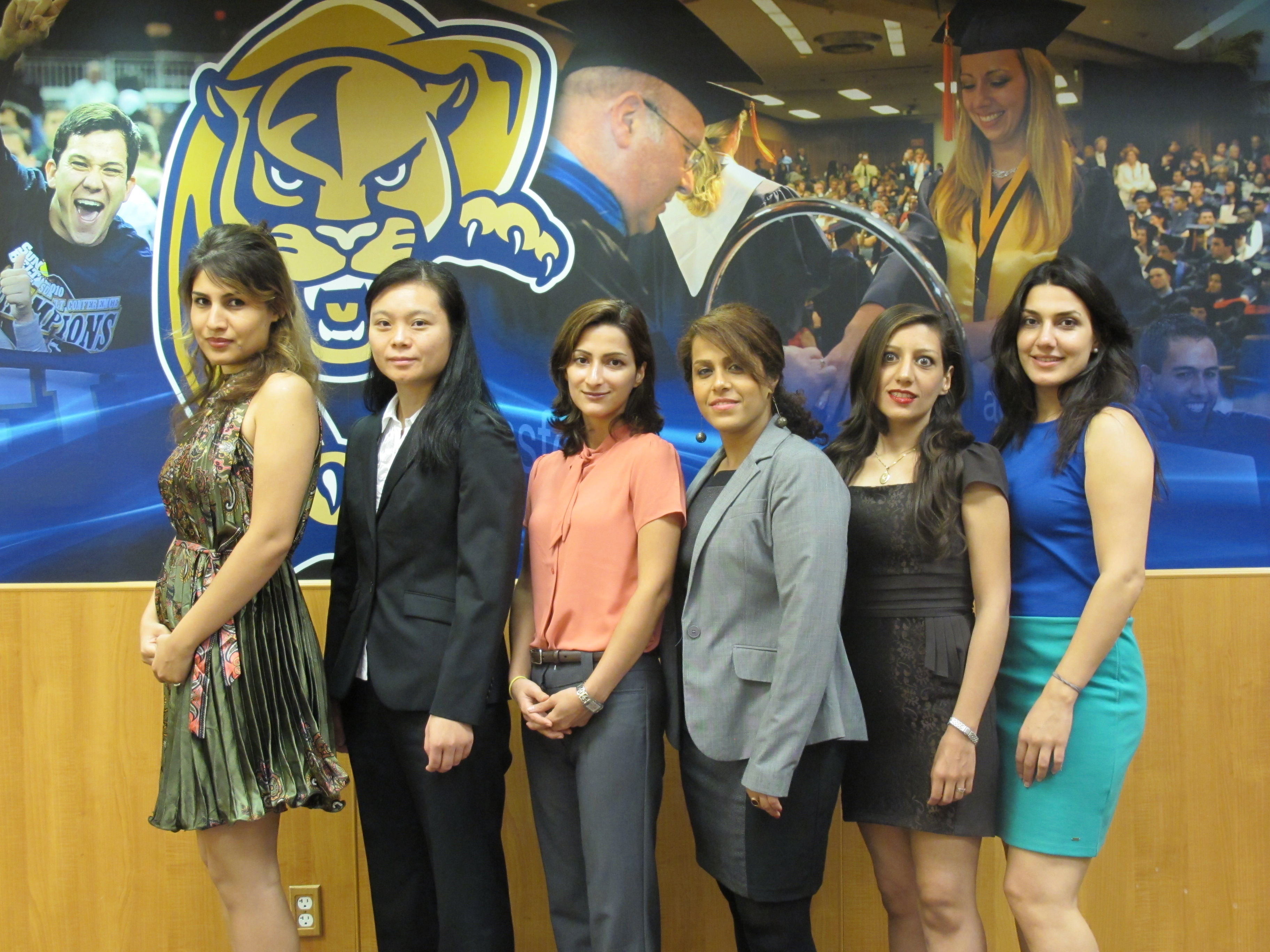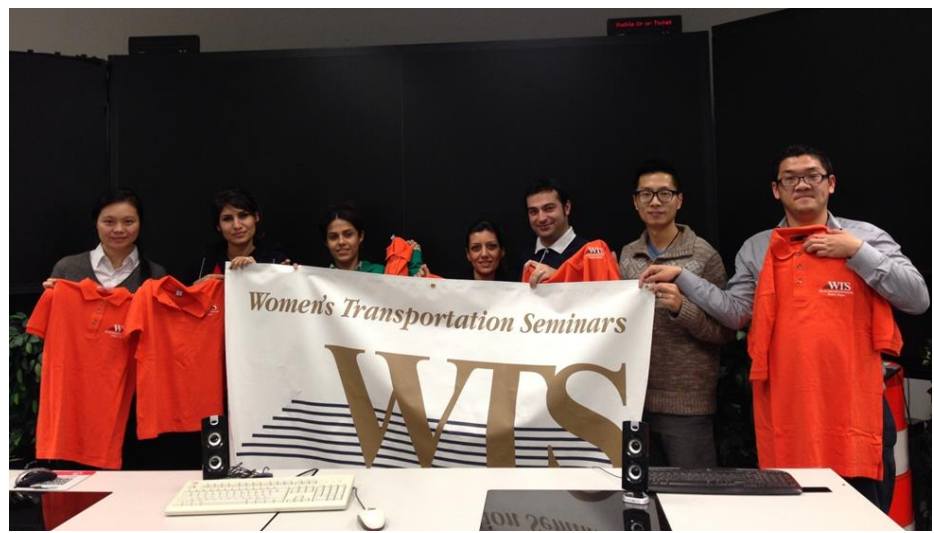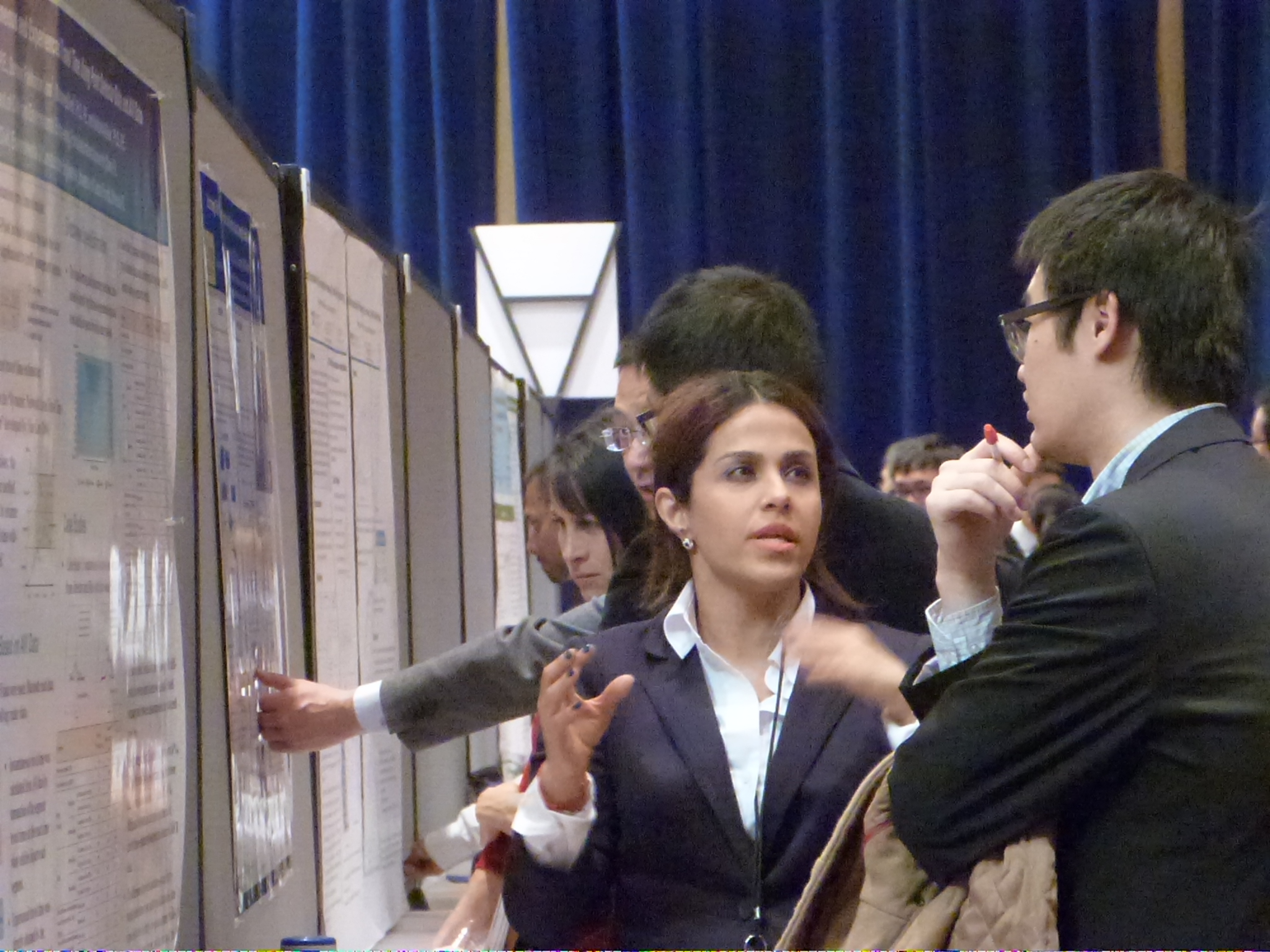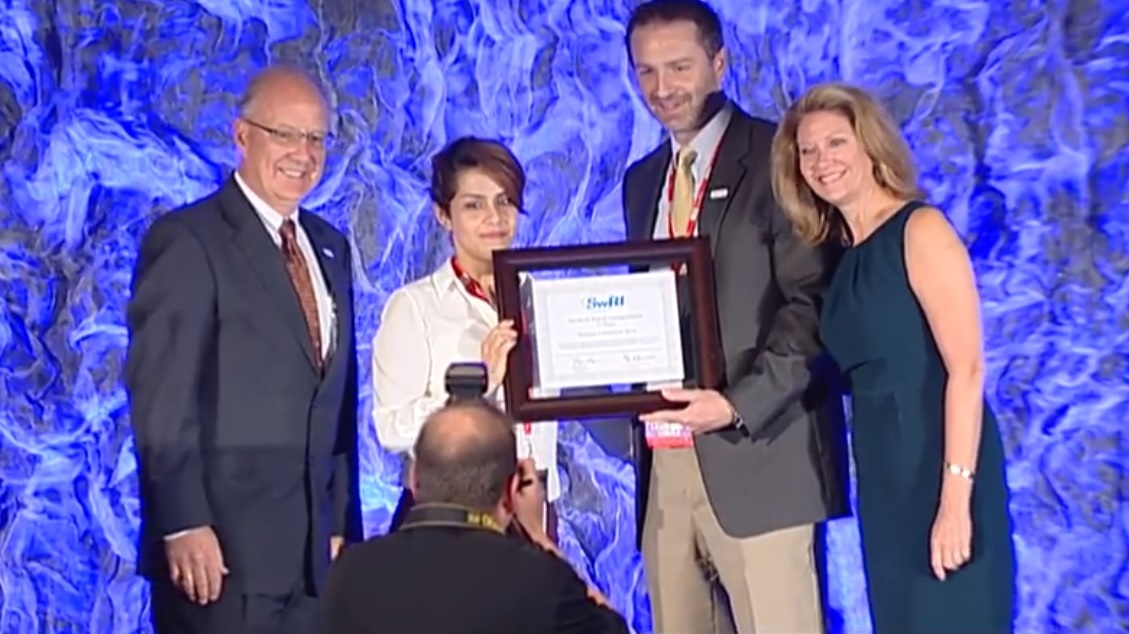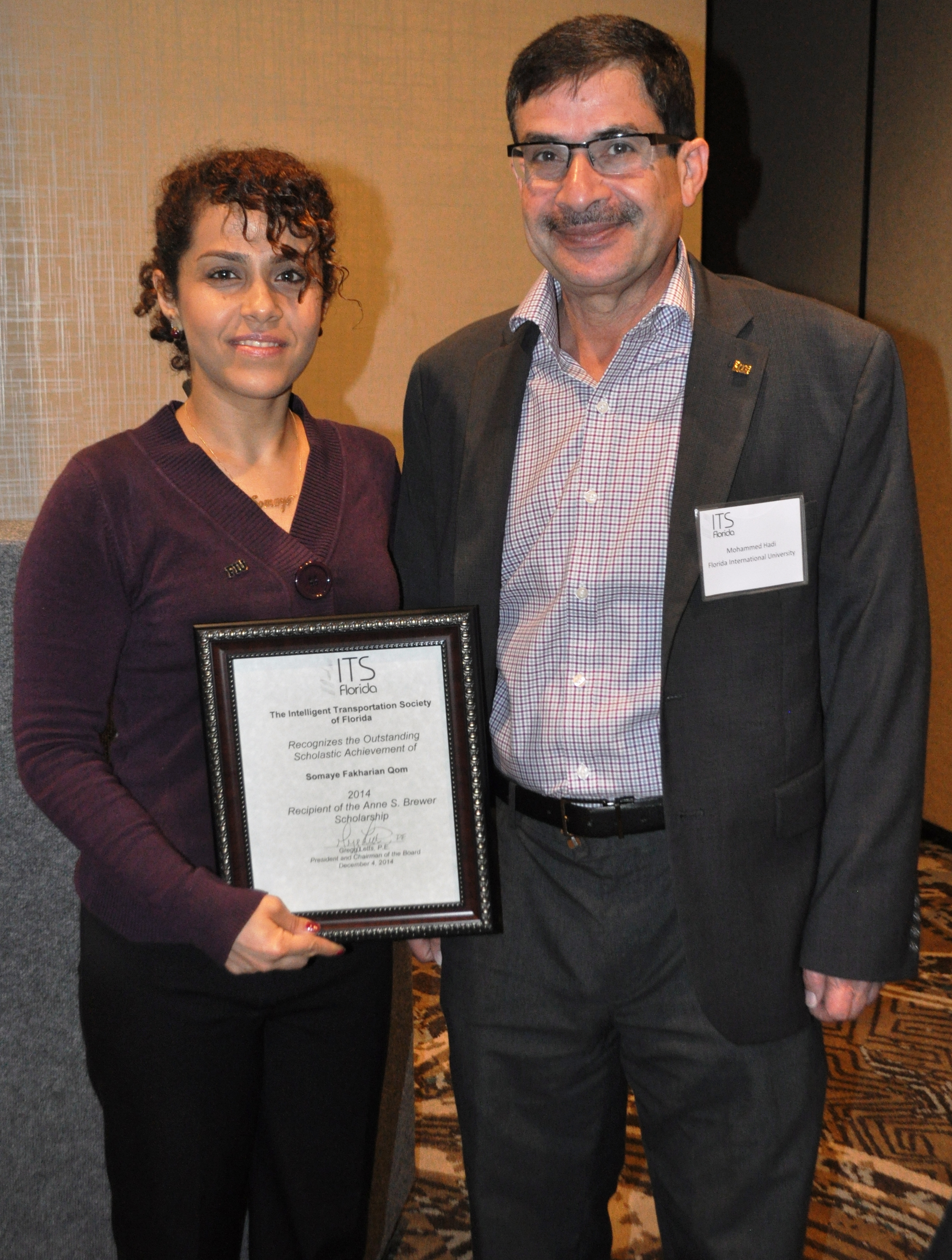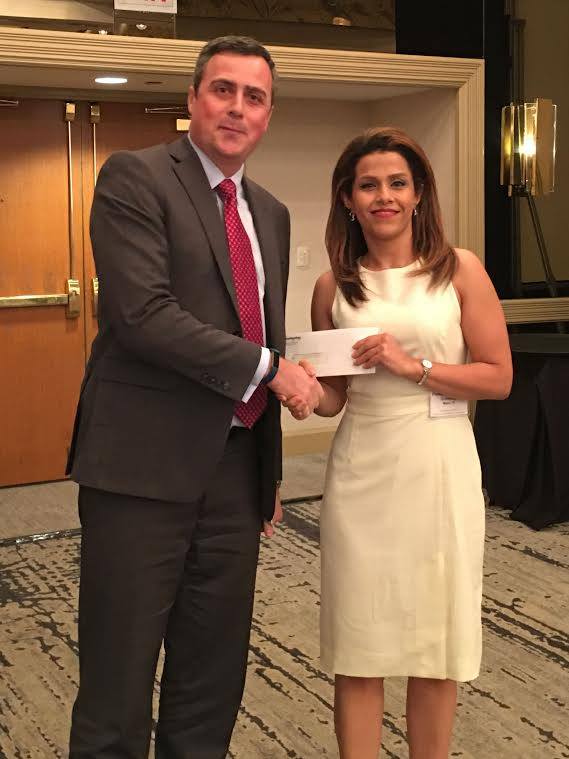Somaye Fakharian Qom just earned her Ph.D. in civil engineering with a focus in transportation engineering. By example, she is inspiring other women to pursue similar careers.
A love for mathematics, and encouragement from a cousin in the field, moved Fakharian to pursue a bachelor’s degree in civil engineering while enrolled at the Iran University of Science and Technology. The Tehran native developed a specific interest in transportation after taking a few courses, and was told by professors it was a growing field, particularly in the U.S.
“I like that transportation engineering is a multidisciplinary field; I find that very exciting. You need to know about management, programming, planning and modeling, and how to combine them,” said Fakharian.
It would be some time before Fakharian packed her bags and headed to Florida. First, she earned her master’s degree from the same university, and then got a job at the Department of Transportation in Iran. She worked there for three years, developing road incident management software and analyzing crash data, among other responsibilities.
Her graduate professors’ advice stuck with her, and when she decided to pursue her Ph.D., she applied to FIU after learning it had a very good reputation for transportation studies. Fakharian left behind her parents, and sister, in pursuit of education and research, and has been with the College of Engineering and Computing’s Civil and Environmental Engineering Department for the past three and a half years.
“Somaye is highly motivated, very focused and works on very challenging research projects,” said Mohammed Hadi, graduate program director and Somaye’s advisor. “She wants to be the best in her field, and has been very successful in doing that.”
Fakharian, who can often be found conducting research in CEC’s Integrated Intelligent Transportation System (ITS) Lab, part of the Lehman Center for Transportation Research, wants women to pursue careers in transportation. She co-founded, in 2013, and served as president of a student chapter for Women’s Transportation Seminar (WTS) at Florida International University (FIU). WTS is an international organization dedicated to the professional advancement of women in transportation. During her presidency, WTS International approved the FIU chapter, making it the organization’s third official university chapter. “We are very proud of [this accomplishment], and Somaye’s role in establishing this chapter was critical,” said Hadi.
Through WTS, she mentored a group of undergraduate students from the Civil and Environmental Engineering Department for a period of eight months, introducing them to research and the benefits of transportation engineering. “I told them to come to transportation engineering because there are a lot of good job opportunities, especially for women. As minorities, we can be more successful in this field,” said Fakharian.
Fakharian’s research is helping transportation officials make decisions on the future of South Florida’s highways, managed lanes and toll policies. “She has been working on research projects in cutting edge areas with connected and automated vehicles on express lanes” added Hadi. “Those are areas where people are wondering what to do next as the vehicles change and they become automated and connected.”
Fakharian’s dissertation was on Multi-Resolution Modeling (MRM) of managed lanes with consideration of autonomous/connected vehicles, which is a top priority for transportation agencies in Florida. Assignment modeling directs drivers to certain lanes to manage volume.
Part of her extensive research examines how many connected vehicles would use managed lanes, during peak periods, if given discounts to use the express lanes. She also researched toll policies, and changing rates based on demand. The end goal is to optimize performance and toll value in the managed lane by incentivizing people to get them to move to those lanes. This is one solution for increasing lane capacity without the need for construction of additional lanes.
Fakharian submitted a paper on the impact of adaptive cruise control technology if used on managed lanes to the Intelligent Transportation System (ITS) America’s student competition and won third place nationwide last year. Another one of her papers, Evaluation of Cooperative Adaptive Cruise Control (CACC) Vehicles on Managed Lanes Utilizing Macroscopic and Mesoscopic Simulation placed first at the International Conference on Managed Lanes organized by the Transportation Research Board (TRB) in 2016. In just three years, Fakharian has submitted 15 articles to journals and conferences in an effort to attract women scholars and transportation engineering agencies. President Mark B. Rosenberg will recognize Fakharian as a Worlds Ahead graduate at summer commencement.
- First guest speaker event of WTS student chapter at FIU, Nov 2013, from left to right: Ezaz, Ali, Dr. Xia Jin, staff of FDOT, Dr. Yan Xiao (Advisor of WTS student chapter), Ms. Aileen Boucle from FDOT, Somaye Fakharian Qom, Shagahyegh, Dr. Mohammed Hadi, Revanth
- Engineering Expo, College of Engineering, Florida International University, Feb 2014 From left to right: Staff of Florida Department of Transportation (FDOT), Somaye Fakharian Qom, Shahadat Iqbal, Staff of Florida Department of Transportation
- First E-board member of WTS student chapter From left to right: Samaneh, Dr. Yan Xiao (Advisor of WTS student chapter), Shaghayegh, Somaye Fakharian Qom, Homa, and Bahare
- First E-board member of WTS student chapter From left to right: Dr. Yan Xiao (Advisor of WTS student chapter), Samaneh, Somaye Fakharian Qom, Homa, Mohammad, Xuanwu, Fengjiang
- Poster presentation in Transportation Research Board, January 2015, Washington D.C.
- 3rd best student essay award, National Award, Intelligent Transportation System (ITS) America, June 2015 From left to right: President of ITS America, Somaye Fakharian Qom, President of Southwest Research Institute (Sponsor of Award), coordinator of ITA America Annual Meeting
- Outstanding scholastic achievement Award, Intelligent Transportation Society of Florida, December 2014 (Somaue Fakharian Qom and Dr. Mohammed Hadi)
- 1st place of top paper award, International Award, 15th international conference of Managed Lanes, Transportation Research Board, May 2016 From left to right: sponsor of the award (Transurban) company, Somaye Fakharian Qom
—
Part 2 of Women in Transportation Series
Millie Acebal Rousseau

